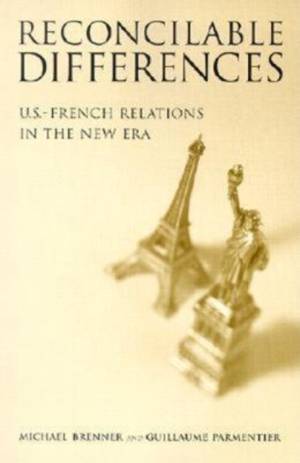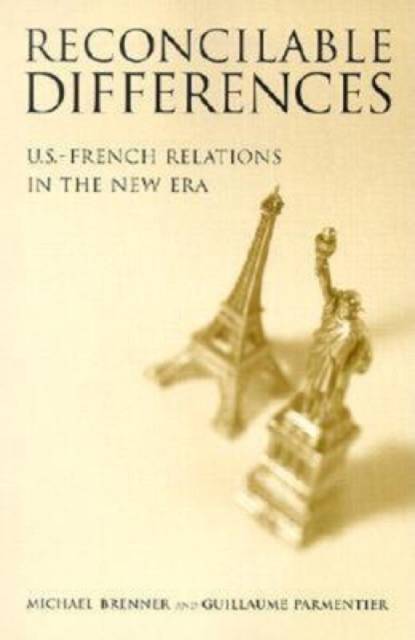
- Afhalen na 1 uur in een winkel met voorraad
- Gratis thuislevering in België vanaf € 30
- Ruim aanbod met 7 miljoen producten
- Afhalen na 1 uur in een winkel met voorraad
- Gratis thuislevering in België vanaf € 30
- Ruim aanbod met 7 miljoen producten
Reconcilable Differences
U.S.-French Relations in the New Era
Michael Brenner, Guillaume ParmentierOmschrijving
The U.S.-French relationship is unique in mixing elements of rivalry and cooperation. Historical allies and comrades in arms, the United States and France are often fractious and quarrelsome. Their promotion of competing visions for a post-Cold War Europe gives a sharp edge to disputes over security and trade issues. Yet their mutual interests as partners in multiple collective enterprises compel them to find ways to put their relations on a surer footing. Doing so is also the key to meeting the larger challenge of reconciling America's dominance as the global superpower with the aspirations of a strengthening European Union. The authors of this study examine how national identity, political culture, and diplomatic style strain ties between Washington and Paris. They prescribe a set of policy and procedural remedies and lay out a strategy for sustaining more constructive collaboration.
"Specificaties
Betrokkenen
- Auteur(s):
- Uitgeverij:
Inhoud
- Aantal bladzijden:
- 168
- Taal:
- Engels
Eigenschappen
- Productcode (EAN):
- 9780815712534
- Verschijningsdatum:
- 29/03/2002
- Uitvoering:
- Paperback
- Formaat:
- Trade paperback (VS)
- Afmetingen:
- 155 mm x 231 mm
- Gewicht:
- 231 g

Alleen bij Standaard Boekhandel
Beoordelingen
We publiceren alleen reviews die voldoen aan de voorwaarden voor reviews. Bekijk onze voorwaarden voor reviews.








